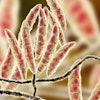
Although no cases of African swine fever (ASF) have been detected in the country, South Korea has introduced new measures to prevent spread of the disease from North Korea.
New outbreaks have been reported in domestic pigs in Romania, South Africa and Vietnam, as well as among the wild boar population in Europe.
Concerned about the risk of the ASF virus spreading from North Korea, South Korea has set up quarantine facilities in the border area. Two hog farms to the south of the Demilitarized Zone have been disinfected in the past week by the South Korean agriculture ministry, reports Yonhap. So far, there have been no outbreaks, and blood tests have revealed no signs of the disease at 600 farms, say Seoul officials, but testing is continuing.
At the end of May, the government of the People’s Democratic Republic of Korea on Pyongyang confirmed one outbreak of ASF at a farm near to the border with China. The disease threatens to exacerbate the already tight food supply situation in North Korea, according to Yonhap. Last week’s meeting to discuss a joint approach to ASF — among other topics — between high-level officials of the two countries was canceled, the same source reports.
Meanwhile, an official newspaper in North Korea reports that workers around the country have been supporting disease control efforts, reports Washington Post. Measures include disinfection of farms and transport trucks, restricting visitors, and stopping the distribution of pork products.
One new ASF outbreak in Vietnam
The World Organisation for Animal Health (OIE) has been informed by the Vietnamese agriculture ministry that the ASF has recently been detected in a village herd of 166 pigs in the region of Ho Chi Minh City.
This is the first outbreak of the disease in the city, according to Vietnam Express, and it means that ASF has been detected in 55 of the country’s 63 regions. Source of the virus may have been food scraps that the farmer had been feeding his animals.
The financial loss from ASF in Vietnam has been put at VND3.6 trillion (US$154 million) by Prime Minister Nguyen Xuan Phuc.
In order to control the spread of the disease in Vietnam, more than 2.2 million pigs have been culled since the first outbreak in mid-February of this year, reports the United Nations’ Food and Agriculture Organization (FAO).
Changes to Hong Kong slaughterhouse practice
The government of the Special Administrative Region has informed OIE that an “all in, all out” policy is now in place at all slaughterhouses in Hong Kong.
The policy change came after the detection of the virus among a second group of “imported” pigs at the same facility within a few weeks. Each time, the slaughterhouse suspended operations for several days to enable the culling of all animals present, the disposal of the carcasses, and thorough cleaning of the site. This work completed, it has now resumed operation.
In the People’s Republic of China, the ministry of agriculture has reported that control measures have been lifted around Guiyang city in Guizhou province after an earlier ASF outbreak.
Since the first case was reported in August 2018, there have been 138 ASF outbreaks in China, and more than 1.13 million pigs have been culled to halt the further spread of the disease, according to the FAO.
New ASF outbreaks in South Africa
South Africa’s agriculture department has confirmed to the OIE three new outbreaks of ASF in domestic pigs, bringing the country’s total since April to eight.
Latest to be affected were two small groups of pigs totaling 22 animals in the Ekurhuleni area of Gauteng province, where previous cases have been detected.
The other outbreak was in North West Province, where 98 pigs of a village herd died as a result of the disease. According to the official OIE report but without explanation, this outbreak was likely linked to previous cases in Gauteng, Mpumalanga, or Free State, and not to transmission from a previous infection in the same province.
As in previous outbreaks, these cases were located outside South Africa’s ASF Control Zone. In case of an outbreak, quarantine measures are set up, and selective culling and disposal are carried out.
Europe: new cases in Romanian backyard herds
ASF virus has been detected among 10 herds of domestic pigs in Romania, according to official reports from the national veterinary authority to the OIE over the past week. A total of 488 pigs were affected in these latest outbreaks, in herds ranging in size from one to 454 animals, and located in the south and southeast of the country.
Further ASF in European wild boar
ASF outbreaks have been reported to the OIE by the veterinary authorities of five European countries over the past week.
At 58, the highest number of animals affected were in Poland. However, the period covered by the report was March 17 to April 4. All the cases were in regions of three provinces — Warmia-Masuria, Masovia and Lublin — already subject to ASF control measures.
Hungary reported to the OIE 31 new cases in the north and northeast of the country, including one cluster of 24 cases in late May. There have been 25 more ASF cases among wild boar in the south, southeast, and northwest of Romania, and two in Latvia. Belgium’s wild boar population in the southern province of Luxembourg suffered a further six losses in recent weeks, according to the official OIE report.
View our continuing coverage of the African swine fever outbreak.

















